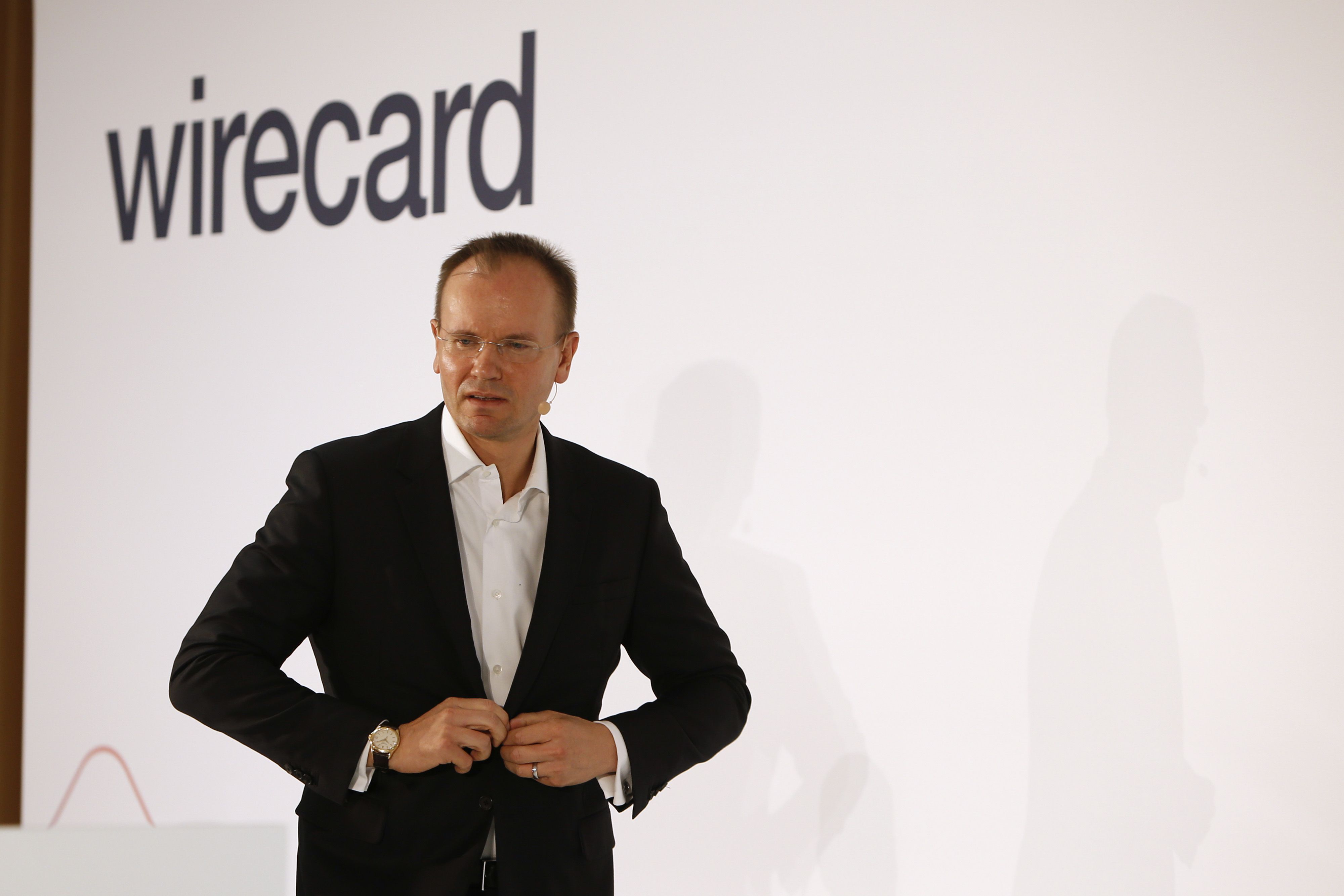Wirecard AG’s long-time auditors, Ernst Young, accused their client of “an elaborate and sophisticated fraud” that allowed more than $2 billion to go missing.
Now that Wirecard has filed for court protection from creditors, the accountants who signed off on the fintech firm’s books for a decade are rejecting responsibility for their role in the debacle and preparing for the inevitable avalanche of lawsuits.
“Ernst Young bear responsibility for this,” said Neil Campling, an analyst with Mirabaud who has had a price target of zero on Wirecard since March 2019. “They were defrauded like everyone else but, as auditors, they should have looked through it. It is amazing that they signed off on the 2018 account.”
EY, as the accounting firm is officially known, finally sounded the alarm last week, when they refused to sign off on Wirecard’s 2019 financial report. (The firm remains the auditor of record). That set off a cascade of events that started with Wirecard admitting it couldn’t locate billions of euros in cash, followed by the ousting and arrest of former Chief Executive Officer Markus Braun (pictured) before Thursday’s insolvency filing.
Wirecard declined to comment.
In its statement, Ernst Young said Wirecard provided “false confirmations and statements with regard to escrow accounts” in the audit for 2019.
“There are clear indications that this was an elaborate and sophisticated fraud, involving multiple parties around the world in different institutions, with a deliberate aim of deception,” said EY Germany, adding that “even the most robust and extended audit procedures may not uncover a collusive fraud.”
‘Frightening’
“It is frightening how long Wirecard AG was able to operate without being objected to by the auditors,” Wolfgang Schirp, a lawyer who has filed suit against EY on behalf of investors, said in a statement. Schirp’s claim, which was filed this month before the fraud was disclosed, alleges that EY failed to flag that 1 billion euros in assets were improperly booked in 2018.
VEB, an association that represents private and institutional European investors, says it’s also preparing legal action against EY, which it expects to file in Germany in the coming weeks. German Finance Minister Olaf Scholz has said “auditors and regulators don’t seem to have been effective here.”
First engagement
Ernst Young’s engagements with Wirecard date to a review of its 2007 books, which were the subject of an investor lawsuit claiming the published results were misleading. The London-based auditor gave the company a clean bill of financial health and subsequently signed off on more than 10 years of the company’s results without raising significant concerns.
During those years, Wirecard grew from a niche payments service to the pinnacle of corporate Germany — membership in the exclusive Dax 30 index. Its collapse is shaping up to be one of Germany’s biggest accounting scandals ever.Separately, auditing firm KPMG also probed allegations about accounting irregularities into Wirecard, but said in late April it was unable to obtain the data needed to confirm past revenues, and criticized the payment processor for internal “shortcomings” and unwillingness by its third-party partners to contribute to the report.
Some investors are irate that EY didn’t seek to clarify previous public statements by Wirecard, which they said misled the market about the extent to which the audit could find more issues.
Braun, the former CEO, told investors in April that “EY informed us this morning that they have no problem at all to sign off the audit 2019,” according to a Financial Times report published several days later.
Silence criticized
Later in May, Wirecard said in a statement that Ernst Young “has informed Wirecard AG that all foreign auditors have meanwhile been able to finalize their audit procedures” and that it had not yet been informed of any material findings though, not all audit procedures had been completed.
“We feel EY should have explained to the market that they weren’t done with the audit yet,” Paul Koster, CEO of VEB. “It was amazing that EY just let this comment slip,” he said, adding the comments led investors to make decisions on selling or buying Wirecard stock they otherwise wouldn’t have.
After EY took over work on the company’s accounts, it assigned the annual review to various sets of auditors throughout the years.
EY and KPMG belong to the so-called Big Four accountants, which all have come under criticism in the U.K. Several instances of firms’ failure to flag the struggles of companies prior to bankruptcies have brought calls to break up their audit and consulting units.
The Wirecard scandal has prompted calls by liberal and green Members of the European Parliament, including Luis Garicano and Sven Giegold, to change European auditing rules; in particular, they cite perverse incentives that arise when audited companies can freely hire and dismiss their own auditors.
“As a result, accounting firms have strong incentives to please their customers rather than to exercise scrutiny,” the lawmakers said.
— With assistance from Donal Griffin